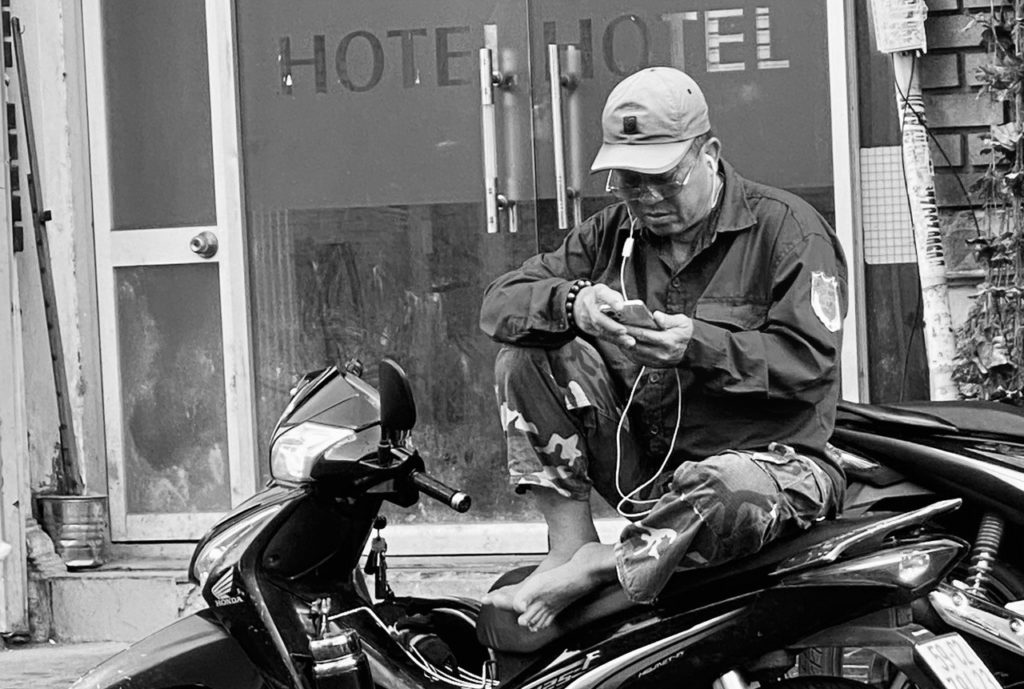No-one bears a grudge.
As Westerners, people might assume us to be Americans, or Aussies – onetime combatants, and much more numerous here than Brits. But if anyone was harbouring resentment, it was well harboured.
Everywhere people say “Hello!” Especially kids. (They love to high-five!) Everyone smiles. There’s never the slightest hint of menace, whatever the neighbourhood or time of day. Doesn’t matter how scrappy it looks; you’re among peaceable people who’ll smile at anyone who smiles at them.
Marxism or Buddha?
The Vietnamese, you soon realise, seem a singularly contented, well-balanced and, for want of a better word, decent people. Is this a thousand years of Buddhism, fifty of socialism, both, neither?
Whatever it is, no-one seems very rich, or very poor, no-one gouges you, no-one seems sullen or unhappy. Going through markets, you’re assailed on all sides with ‘Sir? Madam? You buy something?’ But a smiling ‘No thank you’ is accepted, the smile reciprocated. No-one hassles you. You don’t want to buy something? Fine. Someone will. Have a nice day.
You see barely any police, and only ever at specific fixed checkpoints and the like. You get the impression of a society that barely needs policing. People don’t need to be prevented from wrongdoing. They don’t do wrong because, well, because it’s wrong. It really does seem to be that simple.
Money money money
Twice within the first weeks we made the classic tourist mistake, and were pulled up by street traders: gesturing at the note they’d just received, explaining through gestures, ‘You meant to give me a 50,000 dong note; this is a 500,000.’
Vietnam has no coins, but nine different banknotes, all of which look exactly the same apart from the numbers on them and the colours – all basically near-indistinguishable shades of grubby.
There’s the 1,000 dong, the 2,000 dong, the 5,000 dong, the 10,000 dong, the 20,000 dong, the 50,000 dong, the 100,000 dong, the 200,000 dong, and the 500,000 dong. It’s a lot of dongs, and it’s easy to get the wrong dongs, especially when you’re getting a bit flustered.
The last three zeros of the currency are entirely redundant. Nobody uses them. How much? 20. Or 30. Or 150. Or, most often, especially outside the major cities, two fingers, meaning 20, or a full hand, meaning 50.
You get by. And you’re sure of two things: one, it’s cheap; two, it’s the going rate. A meal for two is a fiver, give or take. And that goes for everyone – you, or the construction worker on the next table.

